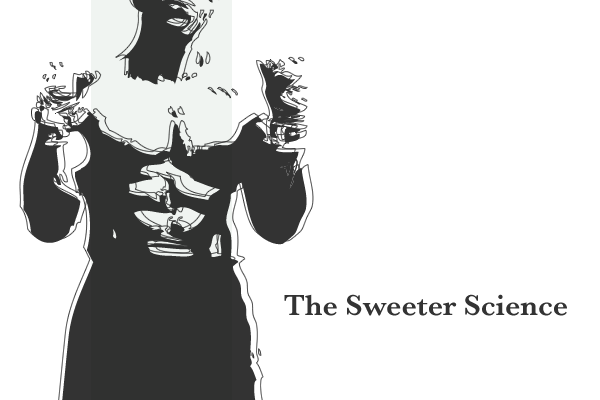PART III: M to the M to the A
TSS: What does the perfect MMA look like to you? Do you prefer how the spectacle evolved into sport or do you prefer the Vale Tudo days and the Rio Heroes of the world?
ER: Well, I want to get rid of the cage. I was undecided for a long time about that but I’ve seen way too many guys get jammed up against the corner of that cage and the action stalls. Then it becomes a discretionary issue of whether or not the ref will stand them up. I am perfectly happy with the Pride method of pulling fighters back into the center of the ring in the same position. It’s a faster game without so much reliance on that third man in the ring.
I’d like to see striking a downed victim come back...or downed competitors I should say (laughs).
TSS: So what do you think of Rio Heroes, those sort of throwbacks to the early vale tudo days?
ER: I really like Rio Heroes, but it’s interesting because have you seen how guys fight when they don’t have their hands protected? They really don’t hit very hard because it hurts (laughs). I found that to be really compelling but it’s not as cinematic, so that won’t happen. The only thing I was glad to see go was the headbutts. That’s not a technique…anyone with a head can do that. Most people have legs but they can’t do an omoplata. But I’d like no cage, no gloves, and striking a downed opponent.
TSS: I prefer the way the sport has evolved under the unified rules because it emphasizes the athleticism and technique over sheer brutality. Some of the techniques used in vale tudo are more about viciousness…
ER: Like what techniques?
TSS: Well…soccer kicks I can do without. Very rarely to they stop an opponent that was not already injured beyond continuing. Elbows I go back and forth on because of the tendency to open ancillary cuts that result in stoppages. It is unfortunate to see a fighter dominating a fight and get barely clipped with an elbow and lose on a stoppage. MMA to me is about answering the question “who’s the better fighter?” When stoppages like that occur it is inconclusive and unsatisfying for all parties. Ultimately I think they should stay because that case is more the exception than the rule.
ER: Well this is where it gets kind of weird because I think they’ve been stopping the fights too early because of the blood looking bad on TV. That last Nick Diaz fight should have continued. If the guy can hop right up and protest it should have gone on. It’s unfortunate to see a guy like Nick get denied the chance to come back. When you look at that last Gonzaga fight, after he broke his nose the ref asked him if he wanted to continue and you could tell he wanted out. That fight was allowed to go on.
TSS: So who’s the best fighter in the world right now, pound for pound?
ER: Oh man, with MMA it’s so tough…I’d have to go with Fedor.
TSS: I was wondering if you’d subscribe to the school of thought that suggests he be dropped due to lack of quality competition in the last year and a half.
ER: Well, that happens. That’s the business end of the sport. I mean, is he ducking Randy? Absolutely not. I think he’s an amazing fighter and the fact that Zuffa didn’t make that deal happen is a travesty.
TSS: Well, they are 100% concerned with the UFC brand, not necessarily what is best for the sport as a whole.
ER: They’ve proven to be largely independent but they’ve also shown that they can take virtual unknown and unproven fighters and make them stars. I like Forrest Griffin and all, but to me he’s still a TV fighter. What was that last fight he had…
TSS: Well he did fight Shogun and finished him.
ER: Oh, man…that smelled so bad to me. I hate to be a conspiracy theorist, but that was highly suspect. Playing devil’s advocate, if you were going to fix a fight, how would you do it? You could fake an injury or something but that would involve the complicity of other people. The only way you can really do it is to gas. Then all the mistakes you make after that make sense to the masses. I mean c’mon…Shogun get’s rear naked choked out? At that level you just don’t see that very often.
TSS: Well, it did happen at 14 minutes plus in the bout. When guys are gassed and/or hurt that’s when you tend to see that. But don’t you think that the stakes are so high that if it ever came out that Zuffa had fixed a fight it would be disastrous? Why would any promotion in the U.S. risk that?
ER: Yeah, but we’ve seen stinky things before. A decision is announced and the crowd boos and all of a sudden there was a miscalculation on the score cards. Look at the Hammill/Bisping fight. That was pretty suspect, but their big mistake there was thinking that people from Manchester gave a shit about someone from London. When they announced Bisping the winner the entire crowd booed.
At the UFC 79 post fight press conference someone asked why Pride fighters are doing so poorly in the UFC and Dana said it was “Octagon jitters.” Oh, really? Quinton Jackson was sitting in the room and he fought in front of 65,000 people at the Tokyo Dome. I know it’s reaching, but I’m enough of a paranoid lunatic to play devil’s advocate (laughs).
Check out Eugene Robinson’s work:
Oxbow: http://www.theoxbow.com/
FIGHT: http://www.eugenesrobinson.com/
Combat Radio: http://combatmusicradio.com/

